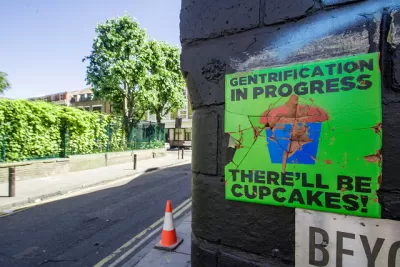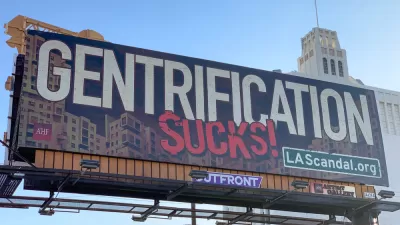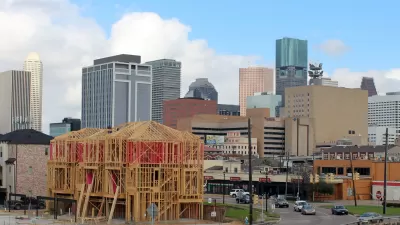A new program by Smart Growth America is working within specific communities to find ways to deliver the benefits of revitalization with fewer of the drawbacks.

Alex Hutchinson shares news of a nascent program by Smart Growth America to explore one of the most challenging topics of contemporary times: how to "capture benefits from the revitalization process for families of all income levels." Finding solutions for that challenge is the goal of the new Planning for Successful and Equitable Revitalization program, which is included in the Smart Growth America technical assistance offerings.
Hutchinson'a post serves to announce the first three communities selected to participate in the program: Birmingham, Alabama; Jersey City, New Jersey; and Raleigh, North Carolina.
- In Birmingham, Smart Growth America will work with REV Birmingham "to help independent retailers and small businesses in the Woodlawn neighborhood remain in their existing locations and expand their offerings as the area grows."
- The Jersey City Redevelopment Agency with work with Smart Growth America to "identify the obstacles low- and moderate-income applicants face when trying to find housing, and will develop a methodology for a supply/demand analysis for naturally occurring low-moderate income housing."
- In Raleigh, the program will with the Department of City Planning "to create equitable development around planned bus rapid transit stations."
The post also includes soundbites from Jersey City Mayor Steven Fulop and Raleigh Planning Director Ken Bowers.
FULL STORY: Jersey City, Birmingham, and Raleigh win new workshops for revitalization without displacement

Study: Maui’s Plan to Convert Vacation Rentals to Long-Term Housing Could Cause Nearly $1 Billion Economic Loss
The plan would reduce visitor accommodation by 25,% resulting in 1,900 jobs lost.

North Texas Transit Leaders Tout Benefits of TOD for Growing Region
At a summit focused on transit-oriented development, policymakers discussed how North Texas’ expanded light rail system can serve as a tool for economic growth.

Why Should We Subsidize Public Transportation?
Many public transit agencies face financial stress due to rising costs, declining fare revenue, and declining subsidies. Transit advocates must provide a strong business case for increasing public transit funding.

How to Make US Trains Faster
Changes to boarding platforms and a switch to electric trains could improve U.S. passenger rail service without the added cost of high-speed rail.

Columbia’s Revitalized ‘Loop’ Is a Hub for Local Entrepreneurs
A focus on small businesses is helping a commercial corridor in Columbia, Missouri thrive.

Invasive Insect Threatens Minnesota’s Ash Forests
The Emerald Ash Borer is a rapidly spreading invasive pest threatening Minnesota’s ash trees, and homeowners are encouraged to plant diverse replacement species, avoid moving ash firewood, and monitor for signs of infestation.
Urban Design for Planners 1: Software Tools
This six-course series explores essential urban design concepts using open source software and equips planners with the tools they need to participate fully in the urban design process.
Planning for Universal Design
Learn the tools for implementing Universal Design in planning regulations.
City of Santa Clarita
Ascent Environmental
Institute for Housing and Urban Development Studies (IHS)
City of Grandview
Harvard GSD Executive Education
Toledo-Lucas County Plan Commissions
Salt Lake City
NYU Wagner Graduate School of Public Service





























